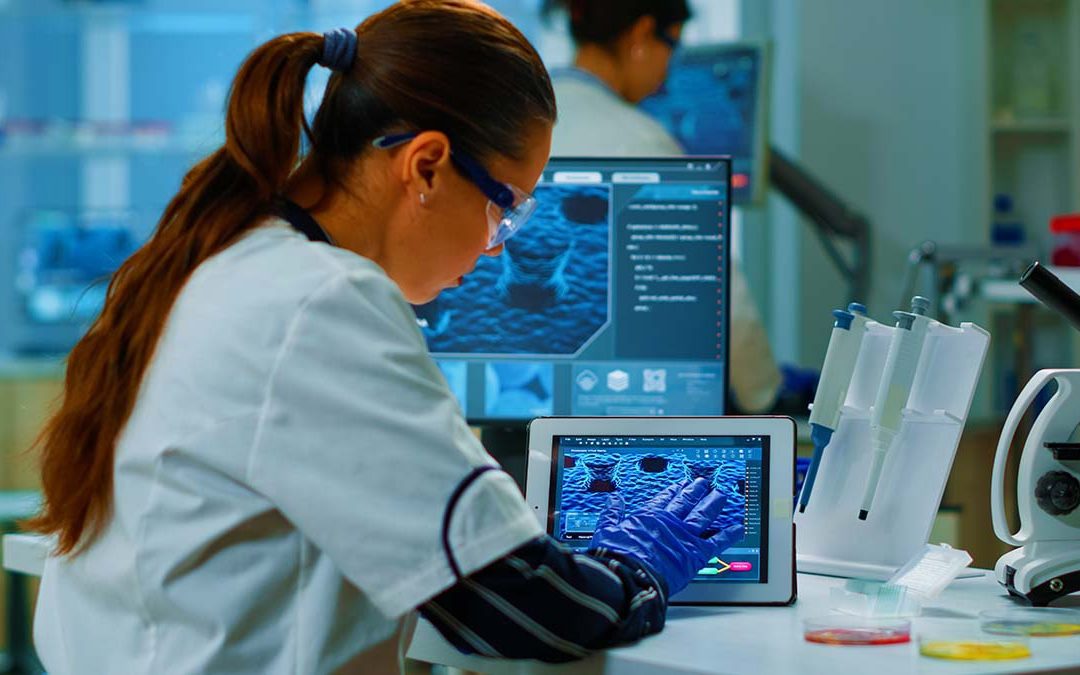The medical industry requires, more so than any other industry, the highest quality, reliable printed circuit boards (PCBs) for devices used to diagnose, test, and treat patients, as well as for laboratory research. The need for this high quality is to ensure that patients are properly diagnosed and treated and, if the device is a life-saving implant, lessen the risk of a significant health risk.
It is standard practice throughout the industry for medical device Original Equipment Manufacturers (OEMs) to turn to Electronic Contract Manufacturers (ECMs) that can deliver the required high-quality PCBs in the required turnaround time. In addition to improvement of the product and process, an ECM for medical device companies can make it possible for OEMs to concentrate on their core competencies without investment in cleanrooms, personnel, and equipment required for electronics manufacturing.
Evaluating an ECM for Medical Device Companies
Of course, cost, quality, and delivery are always primary concerns when medical OEMs outsource PCBs or electronic box build assemblies. But since all ECMs for medical device companies claim to meet these needs, what are the criteria for choosing the best one? Which one can meet that high bar?
Following are some basic criteria that should be considered when evaluating an ECM for work in the medical industry.
-
- We suggest taking a close look at the competencies of your business. What does your business do well, e.g., what high-quality parts can you manufacture at a reasonable cost? What are your company’s strengths, such as product design or product fulfillment? Only after answering these questions can you decide upon which products would be better to outsource while keeping costs within budget yet maintaining product quality.
- Consider whether or not a potential ECM’s processes are compatible with yours. Will their processes and capabilities integrate smoothly with yours?
- Finally (and perhaps most importantly), any ECM you choose should be experienced in working within your industry—the medical industry. You should be able to visit their facility and observe their processes to see for yourself if they are a good fit. They should be able to discuss with you their capabilities, processes, quality control methods, and standout accomplishments. Ask them for references within your industry with similar needs to yours and follow up on those references. Find out how long the ECM has been in the industry and whether or not there have been any complaints. Check for relevant certifications.
The Benefits of Collaborating with an ECM for Medical Device Companies
Having done due diligence regarding the above, we now come to what we believe is of the utmost importance in choosing an ECM for medical device companies—their willingness and ability to communicate and collaborate with you in the development and improvement of high-quality products.
-
- Early on in the process there should be collaboration between OEMs and ECMs with regard to design for manufacturability considerations—everything from raw materials and components to cost, performance, quality, and availability, as well as how well they will work into the process. If this is not done thoroughly, the result could be production delays, increased costs, and poor quality of the medical device.
- Going forward, the ECM should communicate and collaborate ongoing with the OEM regarding the necessity for new parts, modifications to product or process, challenges encountered, and possible improvements. This is key in successfully getting a high-quality product to market or planning ahead for market changes.
- Communication and collaboration should be an integral part of the OEM/ECM relationship, with weekly meetings to stay on top of the process and confront any issues that may arise.
Results
James Norwood, a director of manufacturing supply chain at Omnicell, says using an ECM for medical device companies has helped to improve quality with input on design manufacturability. The ECM also keeps a supply of printed circuit boards on hand and ships as soon as product is released, substantially improving turnaround time.
And Barbara Tischart, writing in a Medical Product Outsourcing magazine article, 10 Tips for a Successful Contract Manufacturing Relationship, comments on the value of collaboration:
“Collaborating with the right contract manufacturer (CM) can have many benefits. The right CM provides program management, which anticipates the needs of the program and the customer, and offers services to resolve unknowns that may arise. Full-service contract manufacturers provide risk mitigation, innovation, quality, and ultimately, faster speed-to-market. An experienced CM partner can help the success of a company’s program.”
Using an Electronics Contract Manufacturer has many benefits from increased efficiencies to lower costs. But it’s important to realize that not all ECMs are the same. And the experience and proven processes an ECM brings to the table will ultimately be the best indicator for success or failure.
About Distron
Distron provides expert in-house engineering and support for value engineering and time to market reduction for the medical industry and would be happy to work with you as a partner.
Distron customers’ products include:
- Automated pharmaceutical dispensers
- Laboratory automation products
- Medical imaging equipment
- Drug discovery automation
- Pediatric Attenuators
- Medical Robotics
Distron has 45 years of manufacturing experience to OEMs who require high-quality circuit board and electro-mechanical assemblies. Their operation and systems are tailored to support medical products and include turnkey manufacturing (from prototyping through production) along with value-added services like design for manufacturing/testability and box build assembly.
For more information on medical contract manufacturing contact Distron today.


Recent Comments